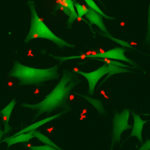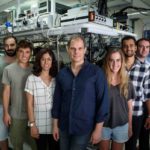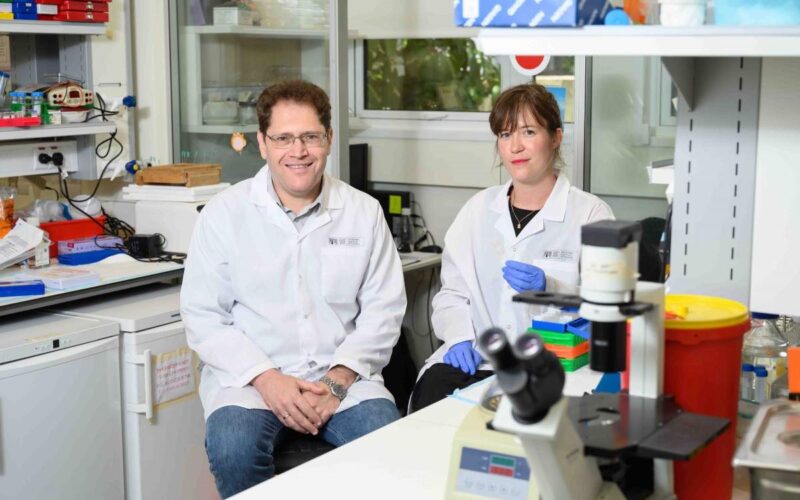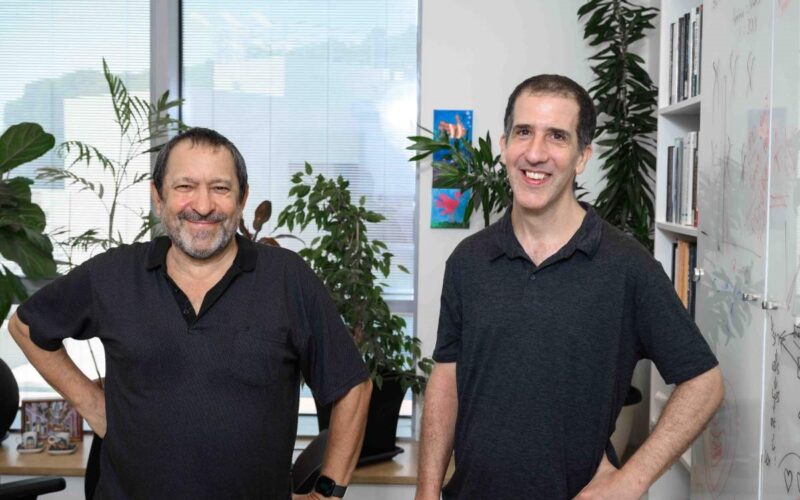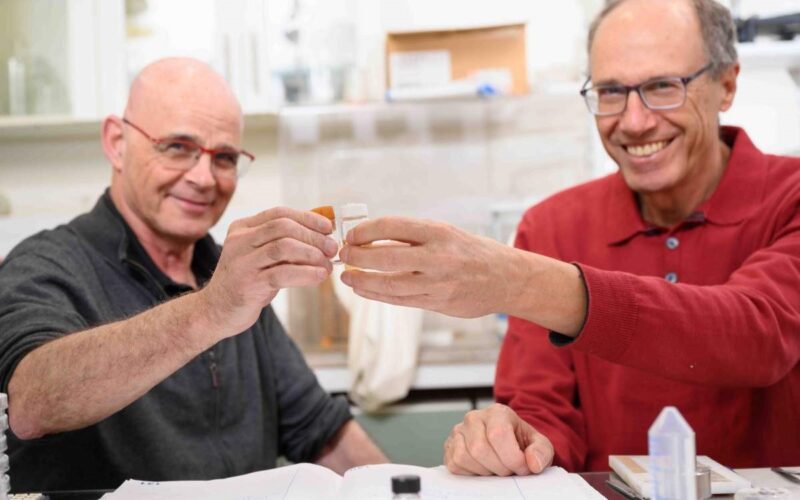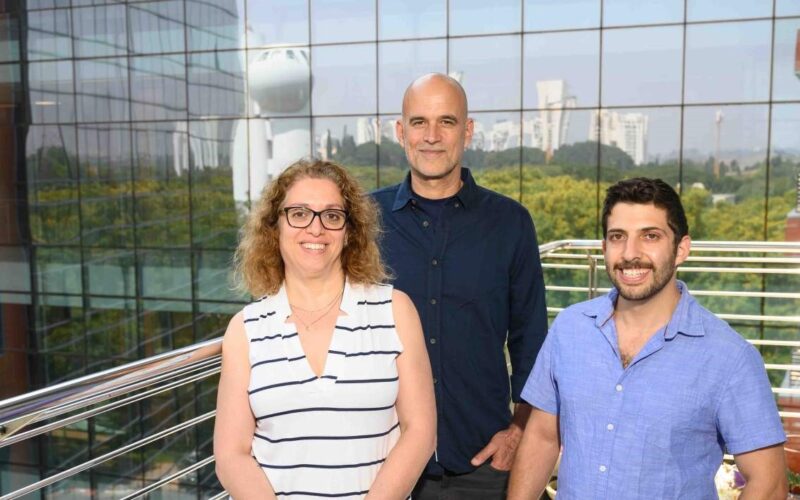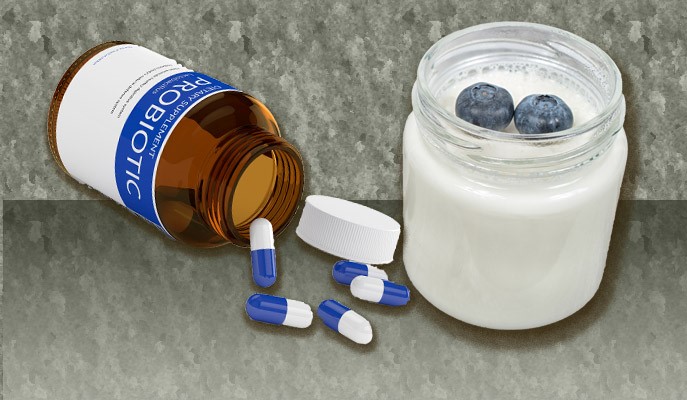
September 24, 2018
Every day, millions of people take probiotics – preparations containing live bacteria that are meant to fortify their immune systems, prevent disease or repair the adverse effects of antibiotics. But do probiotics facilitate the recolonisation of gut bacteria? A new Weizmann Institute of Science study suggests the answer is not so simple.
In fact the benefits of probiotics have not really been medically proven. It is not even clear if probiotic bacteria really does colonise the digestive tract or, if they do, what effects these have on humans and their microbiomes – the native bacteria in their guts.
In two back-to-back reports published in Cell, Weizmann researchers show in both mice and humans that a probiotic preparation of 11 strains of the most widely used probiotic families may sometimes be less-than-beneficial for the user and their microbiome.
To explore how probiotics truly affect us turned out to be an ‘inside job’.
For the first study, 25 human volunteers underwent upper endoscopy and colonoscopy to sample their baseline microbiome composition and function in different gut regions. Fifteen of those volunteers were then divided into two groups: The first were administered the 11-strain probiotic preparation, and the second were given placebo pills. Three weeks into the four-week treatment, all participants underwent a second upper endoscopy and colonoscopy to assess their response to the probiotics or placebo, and they were then followed for an additional two months.
The researchers discovered that probiotics’ gut colonisation was highly individual. However, they fell into two main groups: The ‘persisters’ guts hosted the probiotic microbes, while the microbiomes of ‘resisters’ expelled them. The team found they could predict whether a person would be a persister or resister just by examining their baseline microbiome and host gene expression profile. Persisters, they noted, exhibited changes to their native microbiome and gut gene expression profile, while resisters did not have such changes.
Personalized treatment matters
The study was headed by research teams from the labs of Professor Eran Elinav of the Immunology Department and Professor Eran Segal of the Computer Science and Applied Mathematics Department, in collaboration with Prof. Zamir Halpern, Director of the Gastroenterology Division, Tel Aviv Medical Center. Dr Niv Zmora, Jotham Suez, Gili Zilberman-Schapira, and Uria Mor from Elinav’s lab led the two projects, in collaboration with other members of the Elinav and Segal lab, as well as with additional scientists and clinicians from Weizmann and elsewhere.
“Our results suggest that probiotics should not be universally given to the public as a ‘one size fits all’ supplement,” said Professor Elinav.
“Instead, they could be tailored to each individual and their particular needs. Our findings even suggest how such personalization might be carried out.”
Segal continued: “These results add to our previous ones on diet that had revealed a similar individual response to foods, and which have highlighted the role of the gut microbiome in driving very specific clinical differences between people.”
Post-antibiotic colonisation and the native microbiome
In the second study, the researchers addressed a related question that is of equal importance to the general public, who are often told to take probiotics to counter the effects of antibiotics: Do probiotics colonise the gut following antibiotic treatment, and how does this impact the human host and their microbiome?
The researchers administered wide-spectrum antibiotics to 21 human volunteers, who then underwent an upper endoscopy and colonoscopy to observe the changes to both the gut and its microbiome following the antibiotic treatment. Next, the volunteers were randomly assigned to one of three groups. The first was a ‘watch and wait’ group, letting their microbiome recover on its own. The second group was administered the 11-strain probiotic preparation over a four-week period. The third group was treated with an autologous fecal microbiome transplant (aFMT), made up of their own bacteria that had been collected before giving them the antibiotic.
Probiotics, after the antibiotic had cleared the path, could easily colonise the human gut – more so than in the previous study in which antibiotics had not been given. To the team’s surprise, the probiotics’ gut colonisation prevented both the host gut’s gene expression and their microbiome from returning to their normal pre-antibiotic configurations for months afterward. In contrast, autologous FMT resulted in the native gut microbiome recolonizing and the gut gene expression profile returning to normal within days.
“These results reveal a new and potentially alarming adverse side effect of probiotic use with antibiotics that might even bring long-term consequences. In contrast, personalized treatment – replenishing the gut with one’s own microbes – was associated with a full reversal of the drugs’ effects,” ” said Professor Elinav.
Since probiotics are among the world’s most traded over-the-counter supplements, these results may have immediate, broad implications.
“Contrary to the current dogma that probiotics are harmless and benefit everyone, we suggest that probiotics preparations should be tailored to individuals, or that such treatments such as autologous FMT may be indicated in some cases,” concluded Professor Segal.
Also taking part in the studies were Mally Dori-Bachash, Stavros Bashiardes, Maya Zur, Dana Regev-Lehavi, Rotem Ben-Zeev Brik, Sara Federici, Yotam Cohen, Max Horn, Raquel Linevsky, Meirav Pevnesr-Fischer and Hagit Shapiro of the Elinav; Eran Kotler, Daphna Rothschild, David Zeevi and Tal Korem of the Segal Lab; Andreas E. Moor, Shani Ben-Moshe and Shalev Itzkovitz of the Itzkovitz lab; Alon Harmelin of the department of veterinary resources, Nitsan Maharshak, Oren Shibolet of the Tel Aviv Sourasky Medical Center, and Itai Sharon of the Tel Hay college and the MIGAL institute of the Galilee.
Profofessor Eran Elinav’s research is supported by the Leona M. and Harry B. Helmsley Charitable Trust; the Adelis Foundation; the Pearl Welinsky Merlo Scientific Progress Research Fund; the Rising Tide Foundation; the Else Kroener Fresenius Foundation; Vera and John Schwartz; the Lawrence and Sandra Post Family Foundation; Yael and Rami Ungar; Leesa Steinberg; Jack N. Halpern; the estate of Bernard Bishin for the WIS-Clalit Program; the Park Avenue Charitable Fund; the Hanna and Dr. Ludwik Wallach Cancer Research Fund; the European Research Council; Donald and Susan Schwarz; Valerie and Aaron Edelheit; the Howard and Nancy Marks Charitable Fund; and the estate of Malka Moskowitz. Professor Elinav is the Incumbent of the Sir Marc and Lady Tania Feldmann Professorial Chair.
Prof. Eran Segal’s research is supported by the Crown Human Genome Center, which he heads; the Else Kroener Fresenius Foundation; the Adelis Foundation; Judith Benattar; and the European Research Council.

